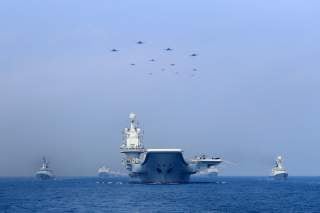South China Sea: Deterring a Fait Accompli
Many states have resorted to limited land grabs designed to unilaterally change the territorial status quo before the target could muster an effective response. China seems to be following this pattern.
The best way to deter China from attempting a fait accompli, for the time being, is to convince Beijing that there is no possible way they could take the islands in a swift and bloodless fait accompli. States increasingly rely on fait accompli rather than war or coercion because they believe it is a low-cost and low-risk alternative that could achieve similar territorial goals. Consequently, fait accompli will become less attractive if those contemplating are convinced that the tactic actually carries more risk and costs than they previously believed.
Thus, states at risk of having their territories seized through fait accompli must convince the potential aggressors that they would definitely make an attempt to reclaim the lost territory, regardless of its intrinsic value. To make this deterrent threat credible, leaders have to sacrifice policy flexibility and tie their hands by raising the public’s awareness about the disputed territories and therefore ensure strong public reaction should the disputed territories be invaded. States should also garrison troops in territories that are vulnerable to a fait accompli. In extreme cases, they could convince their own populace to inhabit the hitherto uninhabitable islands by supplying them with all necessary wherewithals to sustain a normal life on these islands. These measures enhance the credibility of a retaliatory threat because it precludes the possibility of stealthily seizing a piece of territory. More importantly, it ensures that leaders of target state must respond to the territorial challenge or risk losing power at home.
Lan D. Ngo (Ngo Di Lan) is a Ph.D. candidate in International Relations at Brandeis University. His dissertation research focuses on explaining the responses of states to territorial faits accomplis in the modern era.
Image: Reuters

